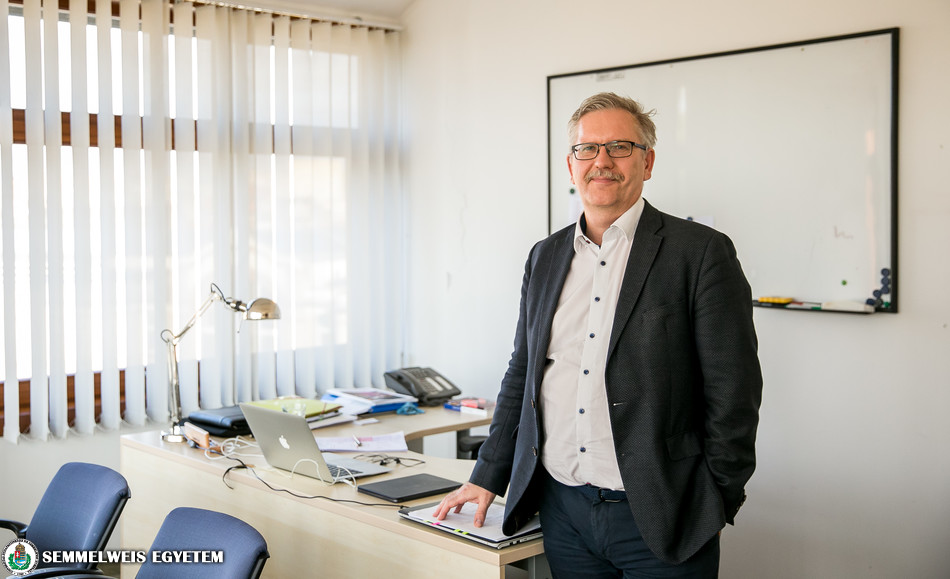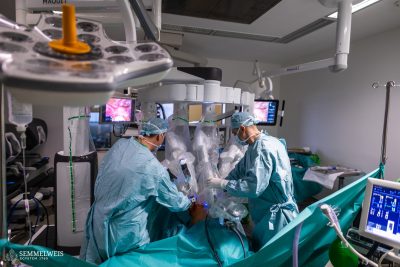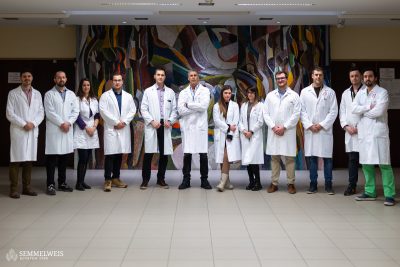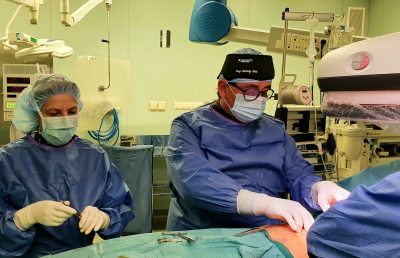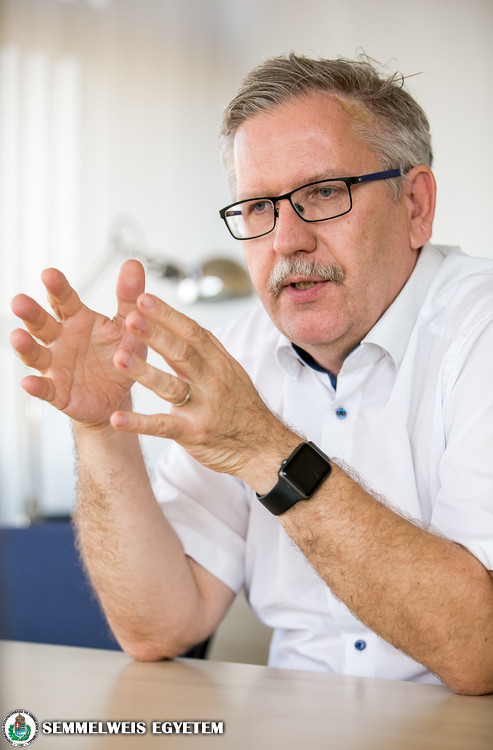 “It is important that institutional research be given a profile, and preference should be given to areas that have social or market value; in addition to basic research, universities also have to focus on these kinds of activities,” said Dr. Péter Gyula Szigeti, the new head of the Directorate of Innovation. The director noted that this strategy is given preference in the European Union’s upcoming Horizon Europe framework program, while the funding schemes of the National Research, Development and Innovation Office (NKFIH) also promotes a shift toward innovation.
“It is important that institutional research be given a profile, and preference should be given to areas that have social or market value; in addition to basic research, universities also have to focus on these kinds of activities,” said Dr. Péter Gyula Szigeti, the new head of the Directorate of Innovation. The director noted that this strategy is given preference in the European Union’s upcoming Horizon Europe framework program, while the funding schemes of the National Research, Development and Innovation Office (NKFIH) also promotes a shift toward innovation.
Prior to being named director, Dr. Szigeti worked as an advisor to the rector and the vice-rector of science and innovation, and he noted that the process of reform involving building the university’s innovation ecosystem already started at that time. As a part of this process, the university’s Senate made the innovation directorate a unit jointly overseen by the rector and the chancellor and significantly expanded its range of tasks. This increased responsibility required that a person head the unit who has a scientific background as well as administrative experience in the area of research, development and innovation (R&D&I).
The director said that the flagship of the university’s reforms in the area of R&D&I will be the Health Industry-Biotechnology Science Park, which will be set up based on a strategic agreement signed by Semmelweis University with the Pázmány Péter Catholic University and the National University of Public Service. The Science Park will include a new kind of teaching and analysis activity one of whose goals will be to orient students, as well as junior and senior researchers, toward future-oriented areas of science as defined by the project (such as imaging, bio-imaging, bionics, big data, digital biomarkers and translational biotechnology), said the director. Dr. Szigeti also noted that the innovation ecosystem and the concept of the Science Park will also help the university reach one of its main goals, which is moving up in international rankings, as international recognition and market revenues, which are part of the project’s plans, are important factors in these rankings.
The surrounding environment and the social and economic needs are constantly changing with relation to research as well. Dr. Szigeti believes it is important that universities don’t just adapt to these changes, but play an active role in forming the process of change. This requires a significant change in attitudes on both a systemic and an individual level, and promoting this change is one of the main tasks of the Directorate of Innovation. In the upcoming period, workers of the directorate will schedule workshop-like points of contact with researchers at various university locations. In addition to the formal part of these events (where e.g. discussions will include how to decide whether a research to be published includes a marketable novelty), participants will also be able to talk informally. It is very important to establish the attitude of determining prior to publication whether a marketable product can be developed, so that the industrial patent process can be started, the director pointed out. However, it is not the university’s jurisdiction to bring the product to market, so for this reason they will motivate researchers to form spin-off or startup companies in a form that benefits both researchers and the university. The university in working on being able to provide support in these endeavors in the form of business incubation. The goal is to have around 100 such companies in the university’s orbit by 2030.
“We would like to inform researchers about the opportunities available in R&D&I and on the market, and establish closer ties with them, win their confidence, since the innovation ecosystem will work only if students, researchers, clinicians and management, i.e. all stakeholders take part in its formation and operation,” the director made clear. The change in approach is supported by a new elective innovation management course for graduate and PhD students that was launched in pilot form this September.
Dr. Szigeti noted that in addition to application management and technology transfer, the directorate will take on new areas such as knowledge management, innovation management, and analysis-based scientific writing. He also added that confidence will have to be built toward the private market as well, where the directorate will play a mediator role between researchers and the private sector.
Dr. Péter Gyula Szigeti received his medical diploma in 1993 in Debrecen, and joined the work of the Physiology Institute there as a researcher already in his third year. He worked there until 2008 as a PhD student, an assistant lecturer and a senior lecturer. He also spent four years in the USA, where he implemented a special procedure he developed at several US research labs, in the University of Cincinnati Allegheny General Hospital Pittsburgh, Penn State University and the State University of New York at Buffalo. Later he worked at Semmelweis University’s Institute for Clinical and Experimental Research, and then was deputy director for National Scientific Research Basic Programs (OTKA) as well as a secretary at the MTA’s Doctoral Council. For four year starting from 2015, until he was named an advisor to the rector and the vice-rector, he was deputy president in change of R&D at the National Research, Development and Innovation Office (NKFIH).
The concept for the Science Park will be presented on October 21 at the Semmelweis Salon.
Pálma Dobozi
Translation: Tamás Deme
Photo: Attila Kovács – Semmelweis University
